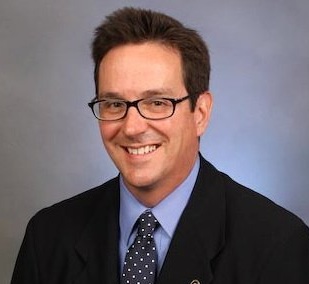ST. LOUIS – As legislation was pre-filed last week, Sen. Kurt Schaefer, R-Columbia, offered what may be one of the most talked about bills in the upcoming session. After St. Louis and Kansas City went ahead with their plans to raise the minimum wage within their cities (and after the legislature scuttled those plans in the veto session by overriding Gov. Jay Nixon’s veto on the “Bag Bill,” which in part prevented cities from raising the minimum wage), Schaefer filed a bill that would eliminate the earnings taxes imposed by the two city governments.
The Missouri Times has reported on this piece of legislation before, but a U.S. Supreme Court decision from May could create an impetus for this bill to have legal justification from America’s highest court.

Schaefer asserts that the two earnings taxes are “in direct violation of the Commerce Clause of the United States Constitution.” The Commerce Clause; Article I, Section 8, Clause 3 of the Constitution; gives the federal government the right “to regulate commerce with foreign nations, and among the several states, and with the Indian tribes.” The phrase in the middle is the most prescient to the case – it entails interstate commerce – and when a legal briefing or document talks about the “dormant” Commerce Clause, it prevents laws passed by state governments that unfairly burden or discriminate against interstate commerce.
The senator further cites the Comptroller of the Treasury of Maryland v. Wynne Supreme Court Case as impetus to revisit the earnings tax. The Supreme Court found by a 5-4 decision that the state had violated the dormant commerce clause when the Wynne family did not receive full credit on their taxes paid to other states where they worked. Maryland’s tax scheme includes a base state tax and a county tax. Residents who work outside the state typically receive a state tax credit to be paid to the outside state. The Wynne’s received such a credit, but the state of Maryland does not extend that credit to the county tax. Since the income tax of the respondent was paid in both the state of their employment, and the county income tax was still being collected, they argued they suffered from double taxation.
The Court agreed.
“Maryland does not offer its residents a full credit against the income taxes that they pay to other States,” Justice Samuel Alito said in the majority opinion. “The effect of this scheme is that some of the income earned by Maryland residents outside the State is taxed twice. Maryland’s scheme creates an incentive for taxpayers to opt for intrastate rather than interstate economic activity.”
That last part indicates a violation of the dormant Commerce Clause.
“We have long held that States cannot subject corporate income to tax schemes similar to Maryland’s, and we see no reason why income earned by individuals should be treated less favorably,” Alito wrote.
Now, the question is whether or not that same justification can be used to prove the unconstitutionality of the earnings taxes put in place by St. Louis and Kansas City and give significant grounds for the legislature to modify or remove it entirely. Schaefer argues it does because those two cities would run into the same problem Maryland did. Maryland is now paying over $200 million in refunds, and he says St. Louis and Kansas City could potentially face the same fallout.
Larry Unger with the Collector of Revenue’s office in St. Louis noted that individuals who live and/or work in St. Louis pay a one percent tax on their earnings and receive returns on those taxes, regardless of whether or not that person crosses state lines to get to their place of employment.
However, the problem Schaefer highlights is with St. Louis residents who may cross into Illinois (or Kansas City residents that cross into Kansas) and do not receive a credit on their income tax paid to Illinois.
Hundreds of cities and towns around the United States have like ordinances, and this case raises concerns all of those earnings taxes could fall under the same jurisdiction.
Regardless, Schaefer’s bill can still be passed whether or not the earnings tax is unconstitutional or not. As the “Bag Bill” showed, the Missouri legislature is more than prepared to put their foot down on municipal governments, and they have the full ability to re-evaluate city and county laws because their authority to administer local statutes comes from the state.
“The reality for St. Louis is if we don’t get this worked out legislatively, someone’s going to sue them,” Schaefer said.
He added that not only did he believe the earnings tax was unconstitutional but that it had become arbitrarily enforced by the city with some big businesses waived from paying the corporate portion of the tax while small businesses and individuals must pay the full amount.






